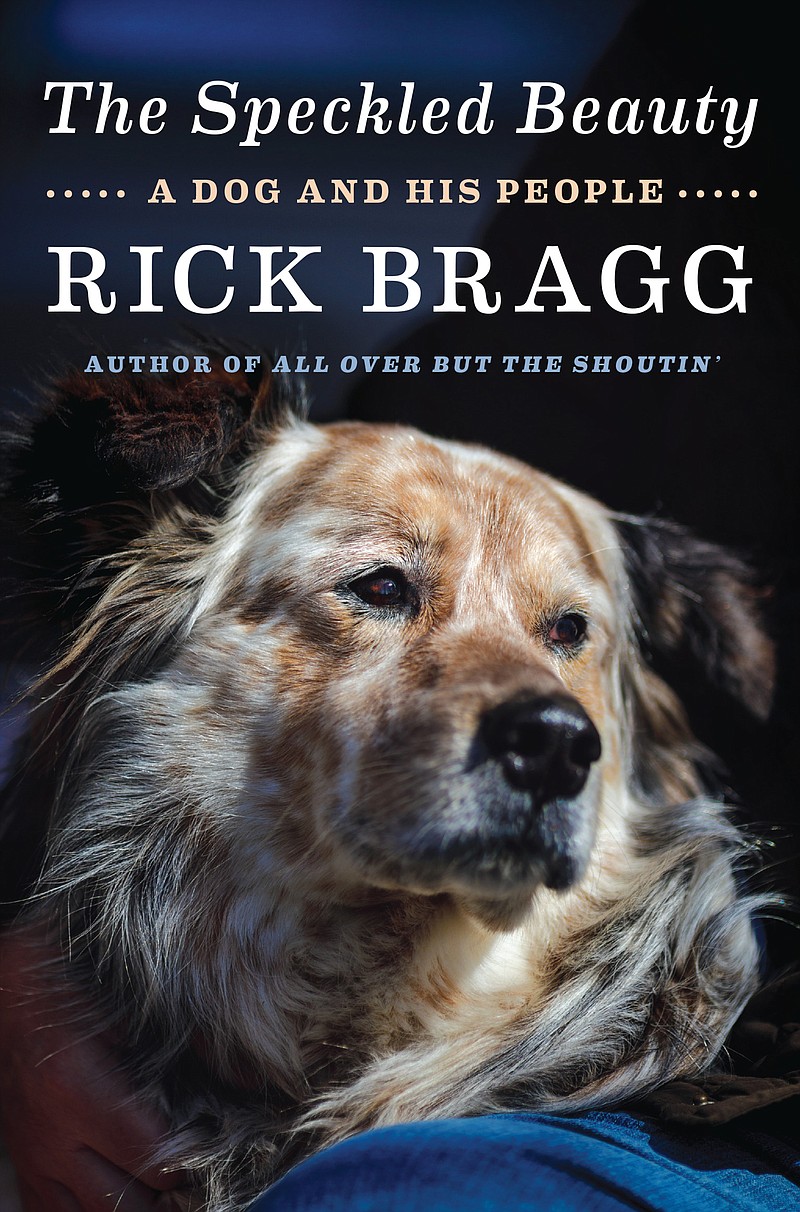"THE SPECKLED BEAUTY" by Rick Bragg (Alfred A. Knopf, 238 pages, $26).
Those of us with city dogs (what Rick Bragg calls "fancy dog people") might be aghast to read about the life of Speck, the rambunctious, mostly untrained, free-ranging and always-spoiling-for-a-fight rescue dog that Bragg writes about in his new memoir, "The Speckled Beauty."
Speck is not a neat and clean and properly neutered rescue dog adopted from the humane society, but was a bleeding, torn-up, blind in one eye and nearly dead Australian shepherd mix that Bragg scraped up off his rural Alabama driveway and somehow nursed back to health.
A former reporter for The New York Times, a Pulitzer Prize winner and the author of 12 books, Bragg grew up in Possum Trot, Alabama. Now in his 60s, he lives on a mountainside outside of Jacksonville, Alabama, with his mother. ("I always came home, when I wasn't sure where else to go," he says.)
Bragg's writing can be wordy and overwrought, his anecdotes possibly exaggerated, but he's almost always entertaining, and this book is a fast read. He says that he learned storytelling from old men, "the backslid Bible scholars, day-drinkers and Huddle House philosophers who chain-smoked Lucky Strikes" and who are mostly now gone, "laid to rest under a few inadequate words gouged into a granite slab."
OK, that's a bit much, though it does have a nice cadence.
Bragg is at his best here when he tells the story straight - it's a good story, the slow metamorphosis of this dog from vicious wild creature to somewhat benign companion.
Speck is a real dog, though he could also be a metaphor for Bragg - both have come crawling home looking for love and care. Both need to improve in just about every way, and both have a deep love of food, especially Bragg's mother's biscuits. (We fancy dog owners would also be appalled by Speck's diet.)
Bragg himself is in poor health, in remission from non-Hodgkin's lymphoma, with heart and kidney failure, chronic pneumonia, kidney stones, diabetes and depression. Oh, and his knees are shot. (He runs, he says, "with all the grace and speed of a potbelly stove.")
Over the years, he and his mother have taken in "hundreds" of strays; the Alabama hills are wild with packs of starving, feral dogs that mate and fight (sometimes to the death) and survive on whatever they can scrounge - fast-food wrappers, rats, snakes and "sometimes worse." (For instance, the unwanted cats that people dump by the side of the road.)
Speck was one of these dogs, which makes it odd when Bragg resists neutering Speck, who is allowed to run free. He agrees to the surgery only after the veterinarian suggests it might calm the dog down. (Nothing can calm this dog down.)
The book has some hilarious scenes, such as when Speck somehow scoops a bunch of kittens into a paper sack and trots with them around the yard. And it has beautiful scenes, such as when Speck herds a flock of blackbirds, circling them, tighter and tighter, "and for a few glorious seconds, he by God pulled it off" until the birds explode up into the air and fly away.
Bragg's descriptions are vivid, his use of colorful place names is enchanting, and while the story is Speck's, whenever Bragg turns the camera on himself you find you like and empathize with him a little more each time.
"The Speckled Beauty" is a very Southern story - the devotion to mother, the wild dogs, the biscuits, the snakes, the red dirt and the ornery mules - but in a broader way it is universal, a story of loyalty, love and redemption.
"My people think a good story will fix just about anything," Bragg writes, and in this case it might actually be true.
